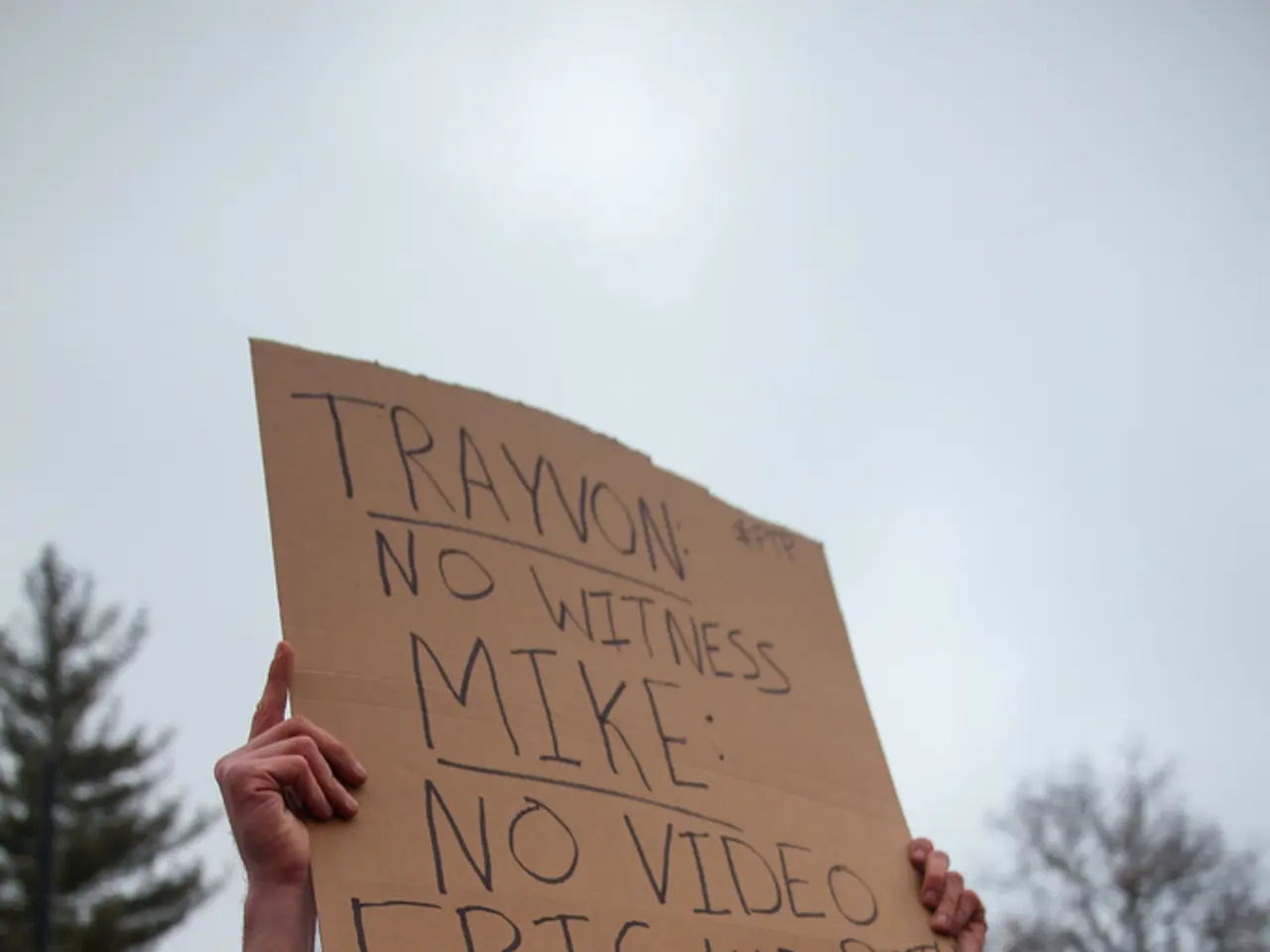California's governor insists on the removal of the National Guard from Los Angeles.
In a heated political and legal dispute, California Governor Gavin Newsom has been vocal in his opposition to the deployment of National Guard troops in Los Angeles, following widespread protests against ICE raids and the Trump administration's immigration policies.
**Deployment of National Guard Troops: A Legal Battle**
The Trump administration's decision to take control of over 4,000 California National Guard troops in Los Angeles under Title 10, a federal law that allows the president to federalize National Guard troops to enforce federal laws during a "rebellion" or when regular forces are insufficient, marked the first time since 1965 that a president deployed National Guard troops from a state without that state's governor's permission.
Governor Newsom sued the Trump administration, arguing that the deployment was an "unprecedented power grab" and illegal because it was done without his consent. Initially, a federal judge sided with Newsom, ordering the troops back under state control. However, a federal appeals court ruled unanimously that the president’s decision to federalize the troops and deploy them in Los Angeles was likely within his authority and legal, allowing the troops to remain under federal control during the legal process.
**Context and Impact**
The deployment was in response to widespread protests and unrest following ICE raids in Los Angeles, with the federal government citing the need to protect federal personnel and property. Local officials, including Newsom, argued the protests did not warrant such a large military presence. Newsom also highlighted the low utilization rate of the troops, estimating only about 5% actively engaged in duties.
By mid-July 2025, the Pentagon began ending its deployment of 2,000 of these National Guard troops, amid Newsom’s calls to have them returned to state control and their original roles supporting public safety and disaster response.
**Governor Newsom's Stance**
Newsom has continued to seek the return of control over these troops to the state, criticizing the federal deployment as costly, underutilized, and politically motivated. The White House responded to Governor Newsom's statement, stating that everyone saw the chaos, violence, and lawlessness.
An officer was injured in Paramount due to protesters throwing rocks at police cars. Governor Newsom described Trump's order to deploy National Guard troops as actions of a dictator, not a president. He has also labelled the deployment as illegal.
**The Future**
The deployment of National Guard troops by the Trump administration without Newsom’s permission was legally controversial but ultimately upheld as lawful by a federal appeals court under Title 10 authority. The future of these troops in Los Angeles remains uncertain, with Governor Newsom vowing to continue his efforts to regain control over them.
- The legal controversy surrounding the Trump administration's decision to deploy National Guard troops in Los Angeles, without Governor Gavin Newsom's consent, has been a heated topic in the realm of policy-and-legislation and politics.
- Governor Newsom, in his opposition to the deployment, also criticized the impact on general-news, such as car-accidents involving protesters, citing one incident where an officer was injured due to rock-throwing.
- As the future unfolds, the fate of these troops in Los Angeles remains uncertain, with Newsom promising to continue his pursuit for policy-and-legislation changes, aiming to regain control over the troops and return them to their original roles supporting public safety and disaster response.
- Additionally, the deployment of National Guard troops in Los Angeles, in response to crime-and-justice issues like widespread protests against ICE raids and immigration policies, has expanded the scope of war-and-conflicts and politics beyond conventional battlefields.








